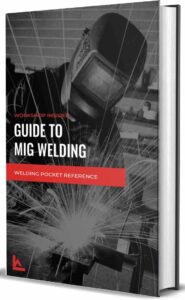When you are a student thinking about going for a welder course, the question “How much do welders make?” comes to your mind. This is an important question, and you have a right to know the answer, but the answer may not be straightforward.
The answer depends on multiple factors, and we have listed many probable answers in this article.
Welders Salary | How Much Do Welders Make?
The U.S.U.S. labor law fixes the minimum hourly wage in the USA depending on state and local laws. The federal minimum wage has been 7.25 USD per hour since 2009, and many states in the USA have set the minimum wages much above this value. States like California, Arizona, and New York, have fixed the minimum hourly wages as more than USD 12.
The starting salary of a welder passed out fresh from a welding school can be anywhere near or above the minimum wage, called entry-level salary. This entry-level hourly salary for an average welder can be 12 USD in many states, but it can be less than this in some states.
The Bureau of Labor Statistics says that the average welder’s salary per year is 42000 USD. This implies that 50% of the welders in the U.S. earned this amount or less than this, and 50% of the welders earned more.
As per the same source, a fresher graduating from a welding school can expect to earn an hourly wage of USD 15 to 17. However, it can also be as little as 10 or 12 USD per hour in some places.
Welding Jobs and Pay Scale
Many employers may pay more than the fixed minimum hourly wages when the worker agrees to put in extra hours during the weekend or work late-night shifts. This can boost the annual welder’s salary.
Places like Alaska and North Dakota have some of the highest hourly wages for welders. Still, those economics are closely linked to jobs in domestic energy production—building, maintaining, and repairing pipelines and rigs.
Other places, like Hawaii and California, are in the top states for the highest hourly welder wages, but the cost of living in these places is much higher than in places such as the Deep South states.
Becoming a Certified Welder
The educational requirements to work as a welder vary by employer. However, a welder candidate generally needs a high school diploma or equivalent and formal courses in welding. The more experience and training a welder has, the more he can expect to earn as an entry-level worker.
When you join a welding school, you can aim to get certification for multiple welding techniques. Instead of getting certification only for stick welding, you can learn and get certified for more welding processes like MIG, TIG, and FCAW. You can even get a specialized certificate for welding pipes.
These certificates put you above others in the job market, and you can be paid higher wages. You can increase your earnings if you are a pipe welder and ready to travel.
The benefits you earn as a welder depend on where you work and your welding jobs. Suppose you work in an organized sector like a company or contractor and are a union member. In that case, you will get benefits like holidays, paid vacation, sick leave, medical and life insurance, pension plans, etc.
However, if you are self-employed or work in an unorganized sector, you may lose many benefits and must arrange for your medical and life insurance.
What are the opportunities for a welder to improve their salary?
The labor statistics in the USA say that 10% of welders have earnings in six figures. So, to improve your earnings, you must work hard to become a part of the 10% class. The following tips show how a welder can increase their earning potential, and they can take you towards the 10% class:
Highly skilled welders who hone their skills continuously and get certified for critical welding can increase their value as welders, and as successful welders, they can earn as much as 30 USD per hour.
- The American Welding Society (AWS) has developed many certification examinations for welders, and the welder can take these exams to become an AWS-Certified welder.
- An AWS-Certified welder can command higher hourly wages, and they need to pass as many AWS exams and collect more certifications, including certification in resistance welding. All this makes you stand out among your peers.
- AWS exams can make you a certified welder supervisor or a certified welding inspector, and these certificates can boost your earnings.
Welders working on natural gas distribution pipelines earn much more than their counterparts working as welders, cutters, fabricators, and brazing welders in a fabrication shop.
Many companies look for punctual welders who have good habits, are intellectual and willing to learn, are team people, and are natural leaders. You can climb the ladder to become a welding supervisor or a foreperson if you have such qualities.
A welder’s hourly wages depend on the location of the place. Places in the USA, like Alaska and North Dakota, pay more hourly wages to the welders due to the high job availability in constructing, maintaining, and repairing pipelines and rigs. However, the working conditions can be harsh (extreme weather conditions).
Many times, good earning opportunities are available away from your place of living, it can be in a different part of the country, or it can be in another country. Your spirit of being ready to move can land you a comparatively high-paid job. Many companies offer special bonuses for relocation. But, compare the cost of living and other expenses at the new place before you relocate.
Shipbuilding companies offer higher hourly wages for welders who can clear a welding test to get certified for new skills. After more experience, the welder can take another skill test and, after certification, is eligible for a further wage hike.
Many welders work overtime, night shifts, and weekends, and all of these positively affect their earnings.
If you are ready to take risks and hazards, you can learn and become an underwater welder. An underwater welder can earn USD 150,000 and upwards a year.
Conclusion
Welding is considered hazardous work. But, skilled welders can learn to do an excellent job without compromising safety and have good earning opportunities.
If you are willing to learn, can concentrate on your welding, and upgrade your skills regularly, then you can plan a successful career in welding.
References:





